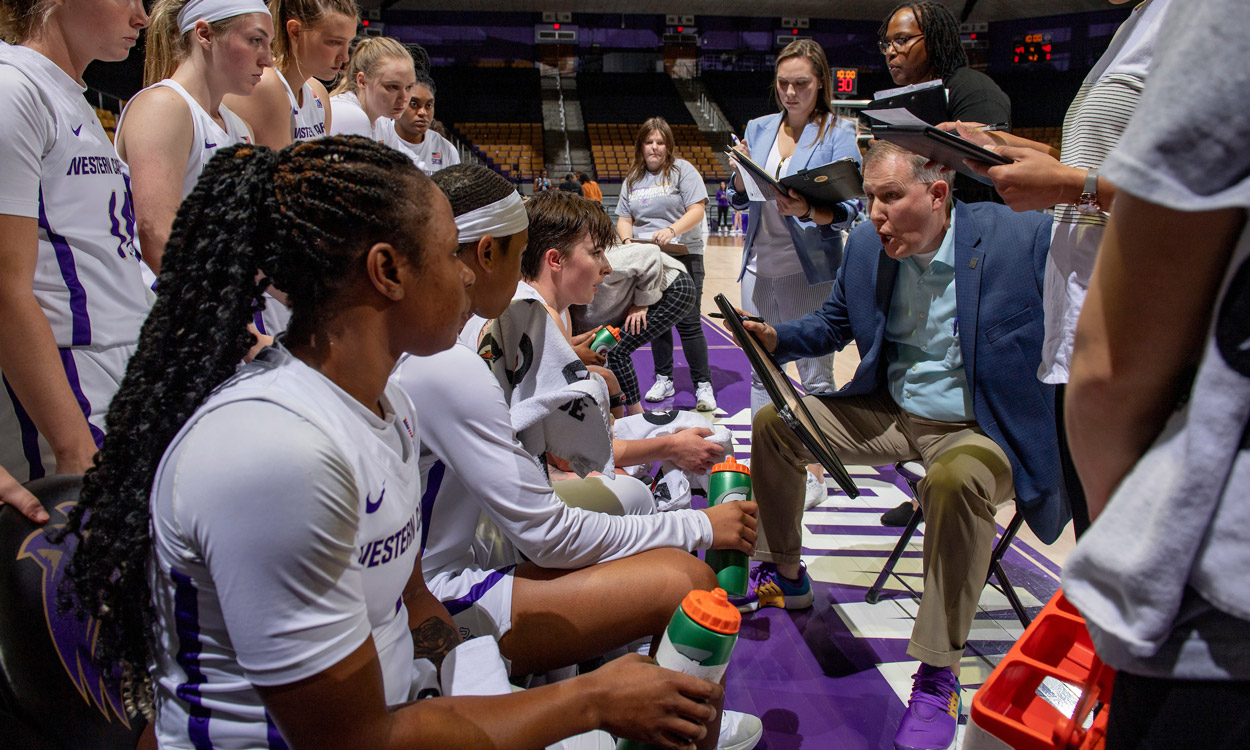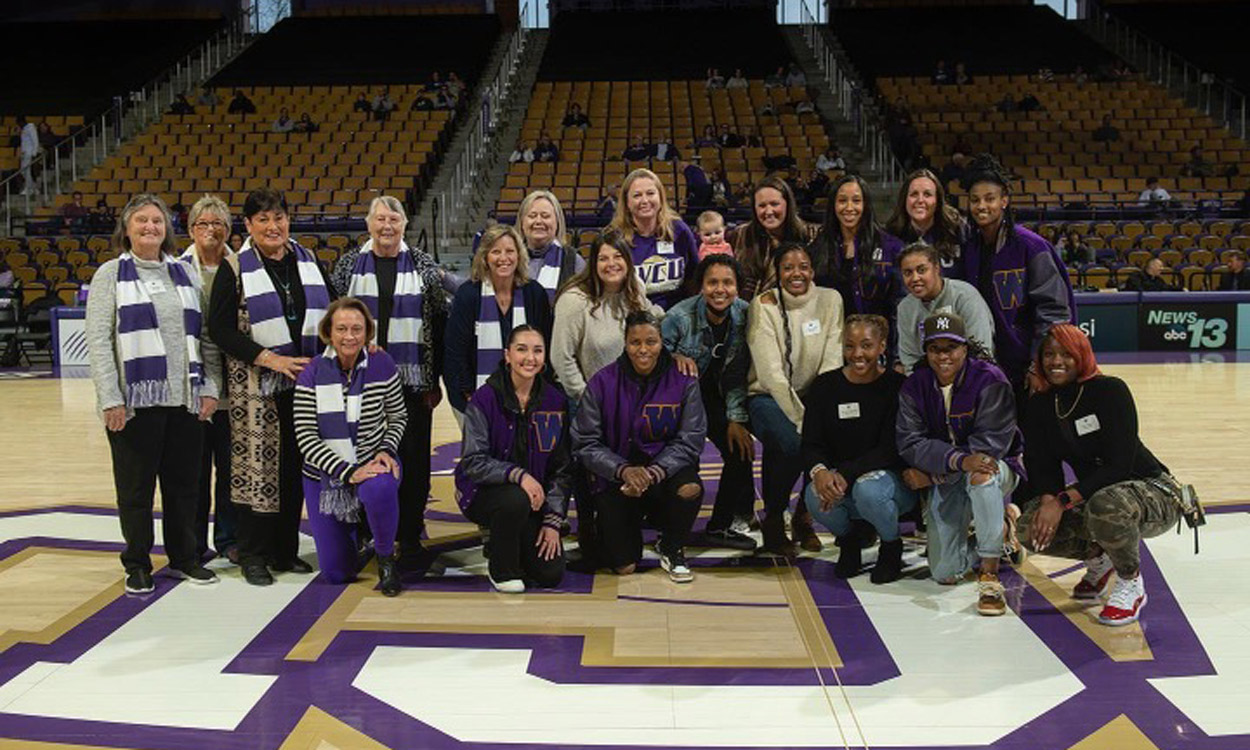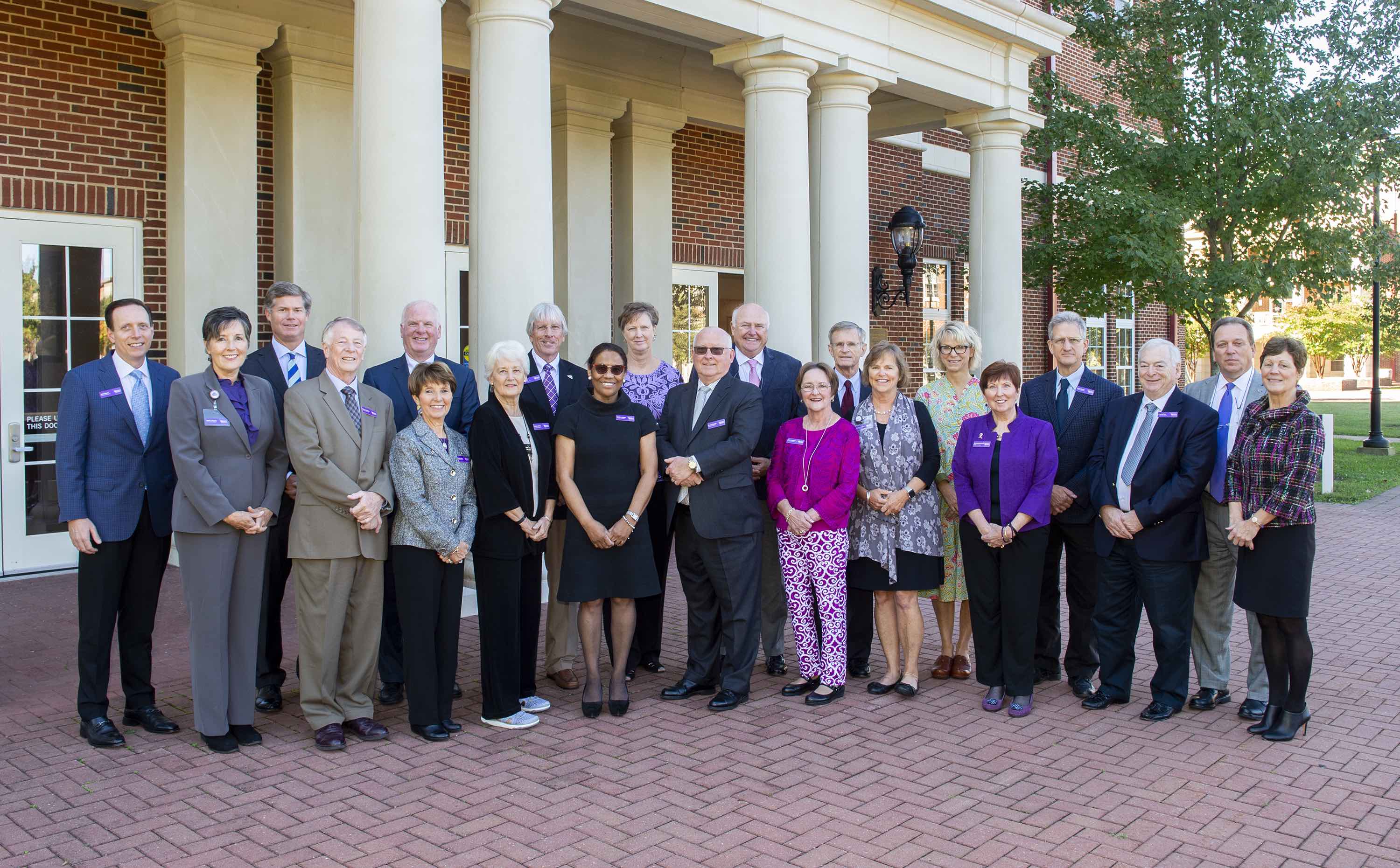Women’s, men’s basketball programs receive support from Fund for WCU, 1889 Impact Grants

By Bill Studenc
The Catamount women’s and men’s basketball programs are among the beneficiaries of financial support awarded to a variety of campus partners as part of the latest round of 1889 Impact Grants, an initiative made possible by contributions to the Fund for WCU.
The women’s basketball team held a spring semester reunion that brought together current Catamount student-athletes and former players as part of an effort to build a stronger sense of community and camaraderie within the women’s program. The event was funded through $1,500 from the 1889 Impact Grants Program.
More than 20 ex-players from the women’s basketball program returned to campus for the reunion – the largest number of former women’s basketball team members to gather at their alma mater in 10 years. Participants enjoyed a buffet meal, networked with one another and with current students, and reconnected with the university, said Kendra Eaton, associate head women’s basketball coach.

“The women’s basketball reunion was a great success due to the 1889 Impact Grant. As a program, we have been trying to engage with our alumnae and get them back on campus. Their positive experience can help spread the word to other alumni, which hopefully can get more to visit campus sooner rather than later,” Eaton said.
On the men’s program side, an 1889 Impact Grant of $1,500 enabled professional development activities at the end of the 2023 NCAA basketball season designed to provide peer-to-peer learning opportunities to a young coaching staff while also increasing awareness of the brand of Catamount men’s basketball.
Now beginning his third season at the helm of the Catamount men’s program, head coach Justin Gray received support helping him attend the 2023 National Association of Basketball Coaches Convention held in conjunction with the NCAA Final Four in Houston, Texas.
While in Houston, Gray also served as a presenter at the Final Four Summit hosted by the Black Coaches Association, a nonprofit organization with the mission of developing coaches, improving hiring practices and encouraging the use of mental health services for student-athletes and association members.
“I’m so grateful to be in at a university that sees the value in developing their own. This was my first Final Four I’ve ever attended, and to be a panelist for the Black Coaches Association was amazing,” said Gray, who was named the NABC District 21 Coach of the Year. “I learned so much from the other events that the NABC held. All the seminars and clinics are a great way to promote our brand while continuing to learn from my peers.”
Launched in 2021, the 1889 Impact Grants Program is designed to provide a consistent source of funding for colleges and other units at WCU in support of initiatives that enhance the engagement of alumni and community stakeholders with the philanthropic activities of the university.
Funding for the program comes from annual contributions to the Fund for WCU, including leadership gifts from members of the 1889 Club, which recognizes donors for gifts made on an annual basis to the Fund for WCU. The club, among four giving societies established by the Division of Advancement to celebrate the impact of philanthropy on the institution, is named in honor of the year of WCU’s founding.
Campus partners requested more than $200,000 in 1889 Impact Grants through 16 campuswide grant applications for the 2022-2023 academic year, and the Division of Advancement allocated $43,500 overall for eight awards, a slight increase from the inaugural $40,000 in grant funding awarded last year.
The WCU Foundation Board Executive Committee reviews all submissions and selects the awardees in the fall of each year. In addition to the 1889 Impact Grants Program, the Fund for WCU provides first-year access scholarships to new incoming freshmen and supports ongoing donor stewardship efforts.
Learn more about how the Fund for WCU and 1889 Impact Grants provided support for this project.

